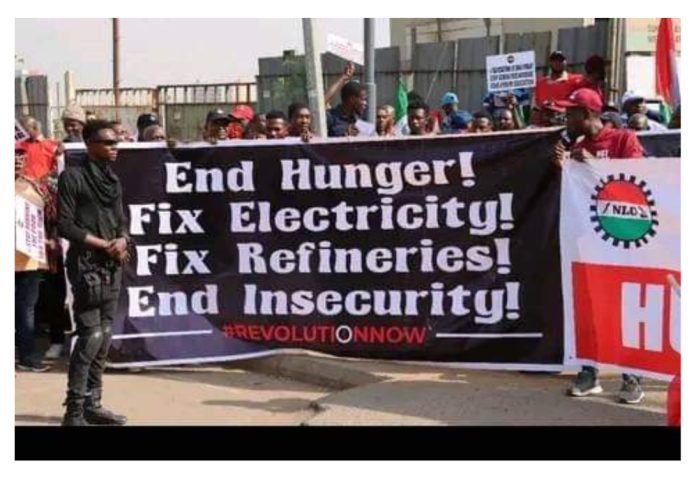Untangling the threads
Located in the heart of west Africa, Nigeria is a country full of vitality and diversity, and its politics are just as much a part of who it is as its people and their environments. Nigeria’s political scene is a fascinating tapestry woven with strands of ambition, resilience, and a yearning for progress.
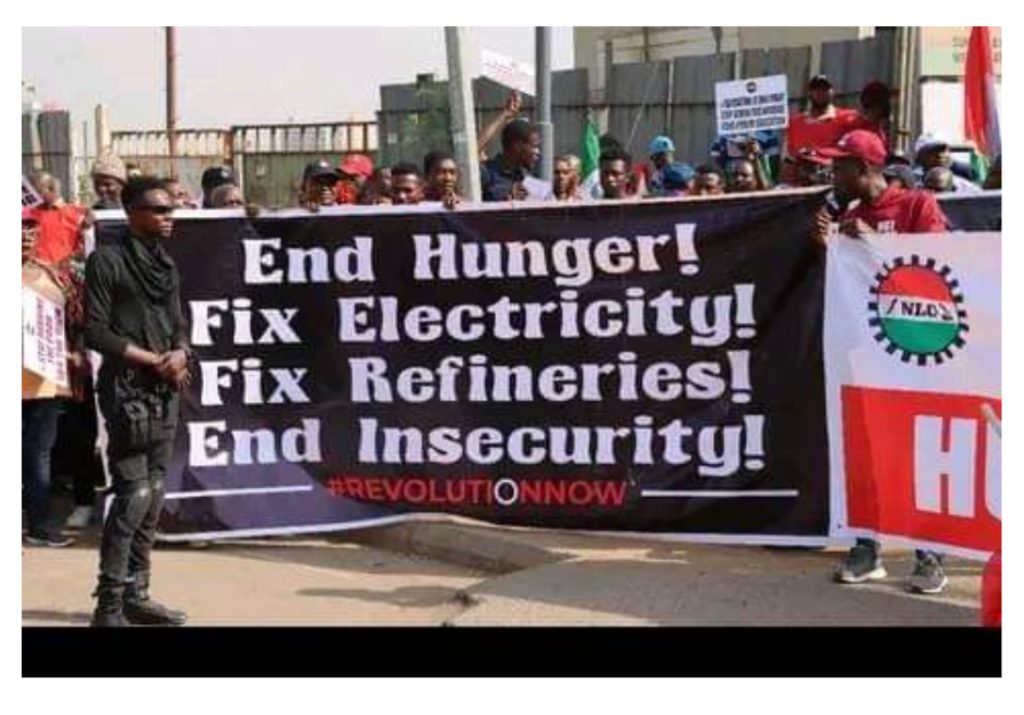
Nigeria’s political trajectory has been one of resilience and evolution, molded by military control, democratic transitions, and colonial legacies.
Nigerian politics and campaigns are a colorful mosaic that reflect the ambitions and goals of the country’s citizens, from the capital city of Abuja’s busy streets to the local communities spread throughout the country.
However,difficulties are present, notwithstanding the fervor of political action. Corruption, inequality, and security are major concerns that put Nigeria’s democratic institutions to the test, as well as the determination of its leaders.
Dynamic leaders, passionate activists, and involved citizens are at the forefront of Nigerian politics, and they are all crucial to determining the destiny of the country. The quest for power and advancement is the driving force behind Nigerian politics, from heated contests on the campaign path to discussions in the National Assembly’s chambers.
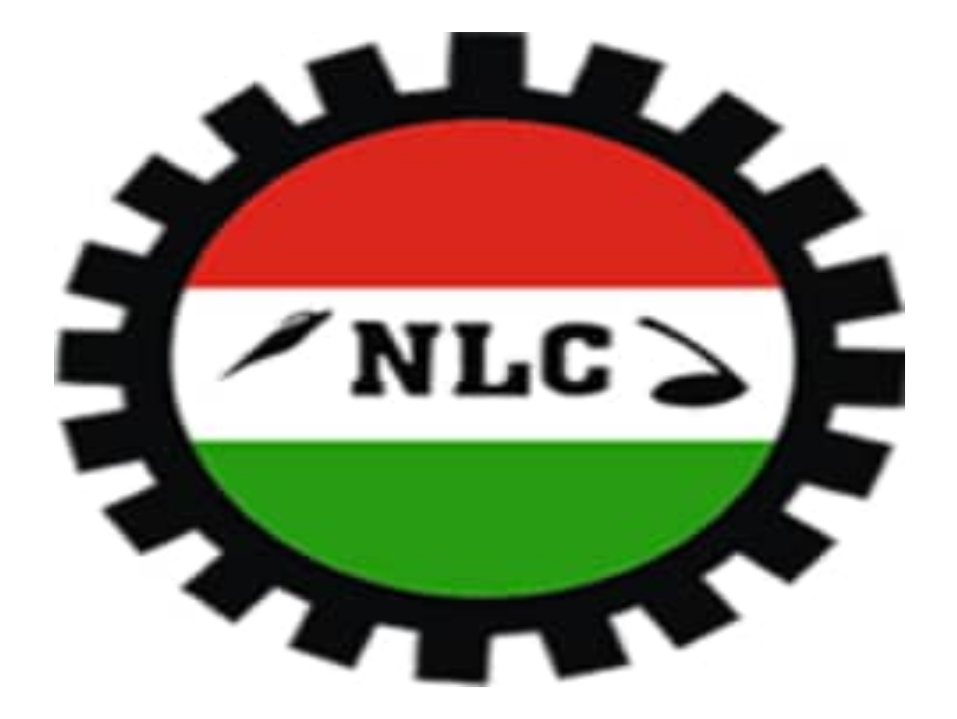
A wake-up call
One well-known trade union in Nigeria that represents workers in all economic sectors is the Nigeria Labour Congress (NLC).
In order to further the interests of workers, the NLC has a history of planning protests, strikes, and agreements with employers in the public and private sectors.They also work with other civil society organisations to solve issues including raising the minimum wage, reforming social security, and upholding Labour laws.
The NLC resolved to stand up for the people despite the resources being diverted from necessary services when it came to the realization that many Nigerians struggle to meet their fundamental needs due to a lack of infrastructure, insurgencies, and worsening poverty and inequality. These needs include food and shelter.
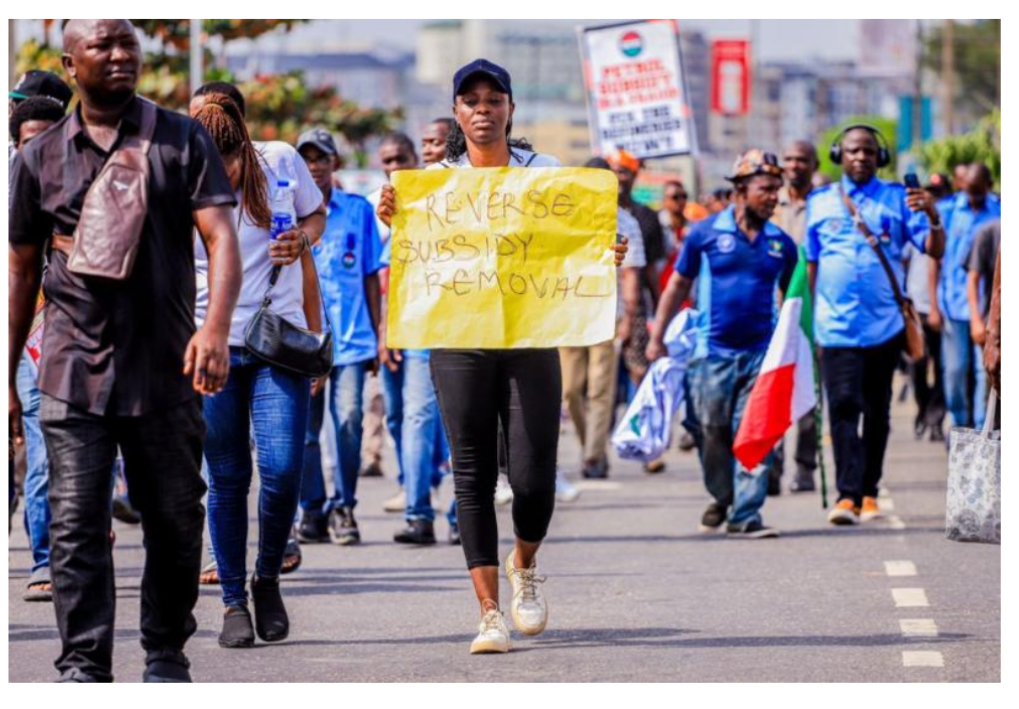
Rifts between Rhetoric and Reality
The current administration, led by President Bola Ahmed Tinubu, made a number of campaign promises to the people of Nigeria during the 2023 presidential election campaign. These included the introduction of new labour laws, regulations, and the accessibility of petroleum products.
Tinubu promised to complete significant gas infrastructure projects, including pipeline building.
The government promised to exercise extraordinary prudence when entering into foreign currency contracts in order to limit inflation and minimize foreign debt.
The Nigerian President asserted that the Labour Congress does not exclusively reflect the views of the Nigerian people upon receiving the NLC’s notice of strike, suggesting that the group ought to wait until 2027 if it wishes to run for president
In addition, the president declared that the NLC’s request for a strike during the first nine months of his presidency was intolerable. The NLC retorted that it was their right to demonstrate and that they were not politicians.
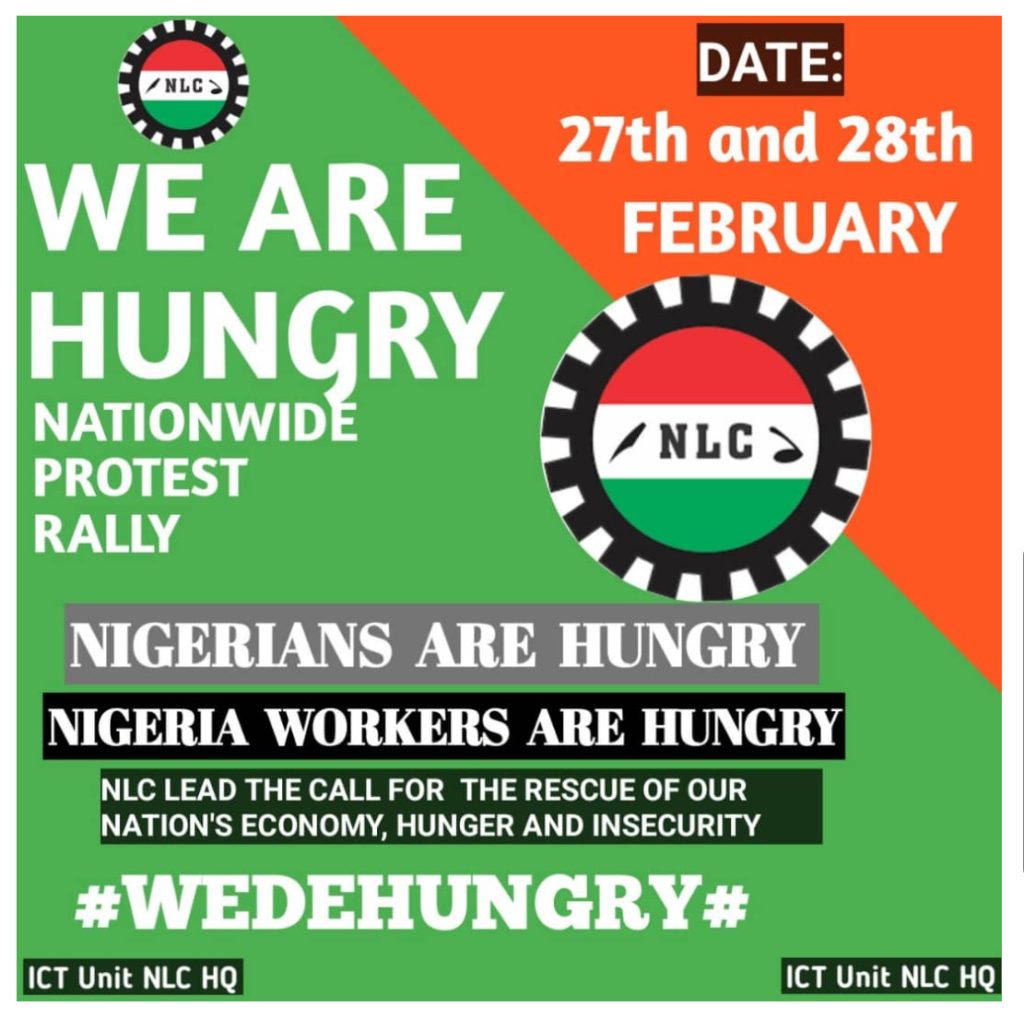
Change is long overdue
On February 9, 2024, the Nigeria Labour Congress( NLC) informed the government of their intended warning strike due to the government’s failure to respond to the plight of its citizens.
Nigeria witnessed on the 27-28th of February,2024, a significant moment in its labor history as the Nigerian Labour Congress (NLC) spearheaded a 2-day nationwide strike action to demand justice, fair treatment, overdue reforms for workers across various sectors,and an annual review of the workers minimum wage.
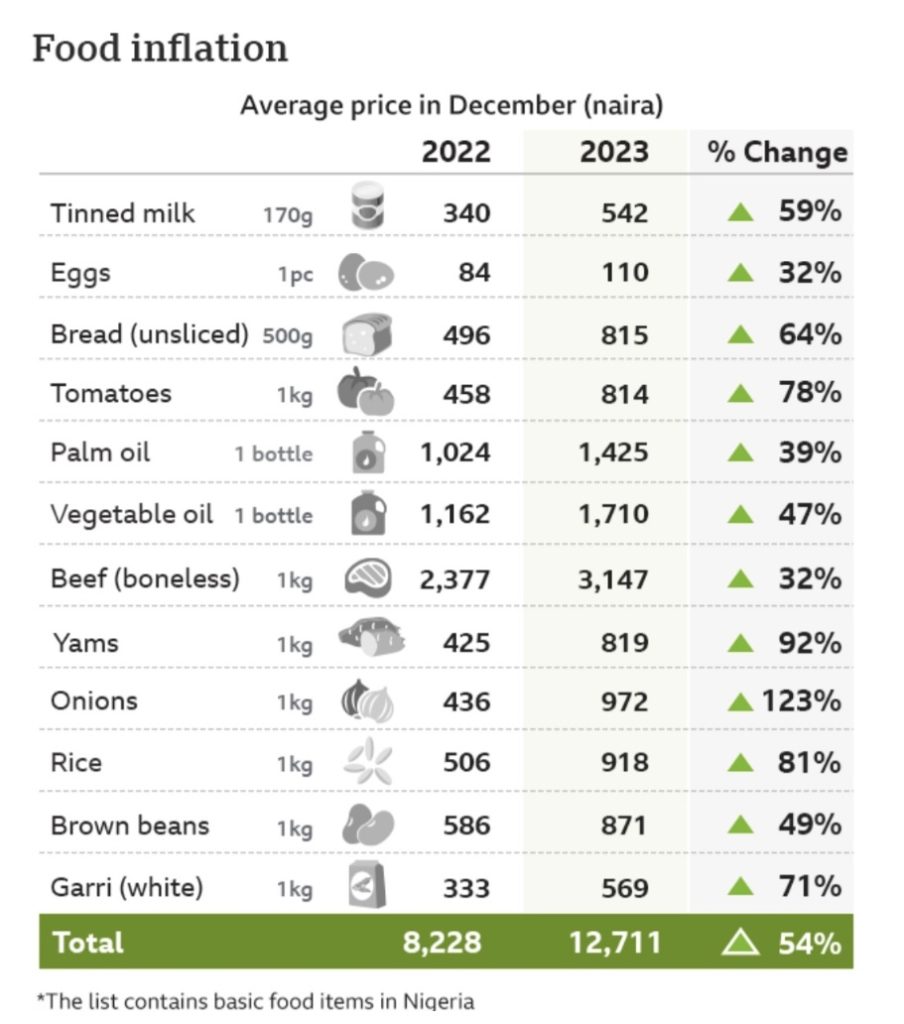
The NLC made use of Negotiations,public awareness campaigns through media outreach,social media and political engagement, thereby making the NLC campaign strategy multifaceted
This unprecedented movement brought attention to the plight of workers and highlighted the urgent need for systemic change in labor practices and policies.
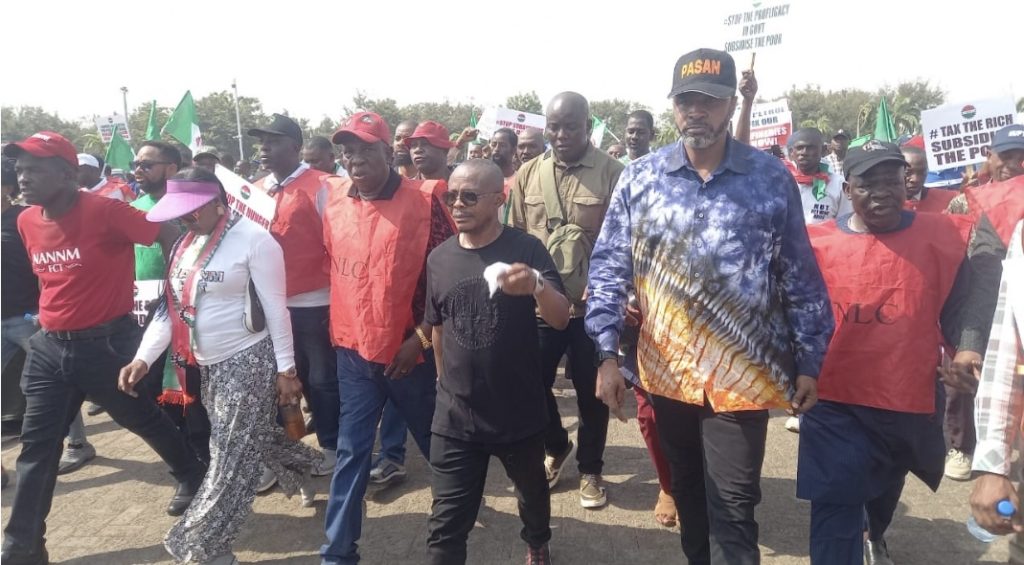
The NLC Chairman, comrade Joe Ajaero, joined in the protest.
Reflections of Nigerians Discontent
In an interview with NLC Chairman Joe Ajaero, he explained that the catalyst for the national strike was the accumulation of grievances faced by workers, including but not limited to inadequate wages, unsafe working conditions, arbitrary layoffs, and a lack of respect for labor rights. These long standing issues had been simmering beneath the surface for years, exacerbated by economic challenges and political instability.
The NLC, representing millions of workers across Nigeria, took a bold stand against injustice and exploitation, mobilizing its members and allies to participate in the strike. The union’s leadership articulated clear demands, calling for an increase in the minimum wage to reflect the rising cost of living, improved workplace safety standards, an end to contract labor exploitation, and greater respect for workers’ rights to organize and bargain collectively.
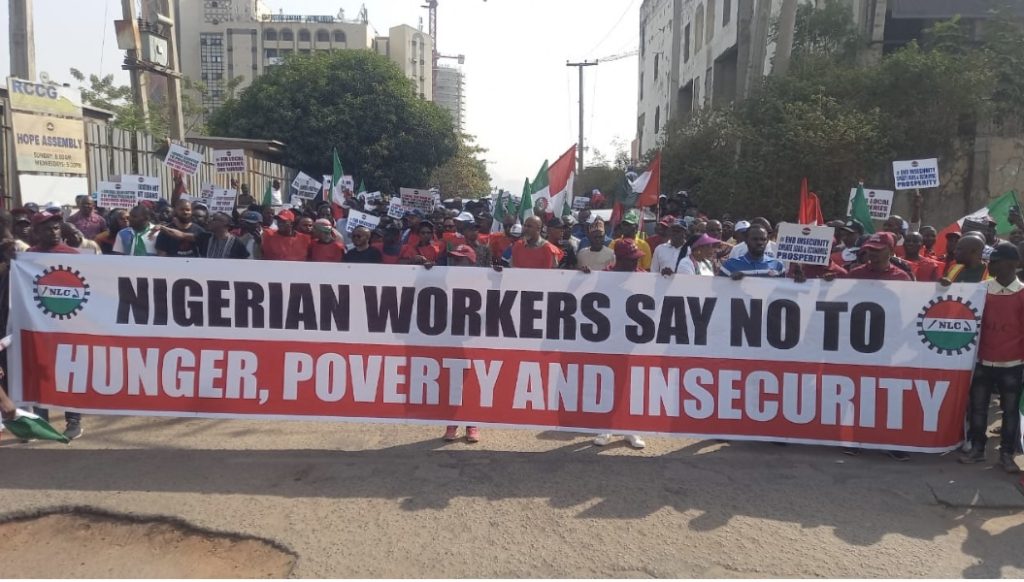
The protesters were accompanied by security personnel to ensure that there was no breakout of fights, riots, or killings during the match.
From bustling cities to rural communities, the impact of the national strike was felt across the country as workers from diverse sectors, including transportation, healthcare, education, and manufacturing, joined hands in solidarity.
The streets echoed with chants of “Mr President, feed us well, govern us well.” as demonstrators peacefully marched to demand change.
During the campaign, a 48-year-old civil servant, Mr. Dangiwa Obed, bemoaned the misery his country and its people were experiencing as a result of corrupt officials and poor governance.
According to him, Nigeria would be in far better shape now if The Labour Party had won the 2023 presidential election.
He also commended the NLC chairman and members for their perseverance and strength.
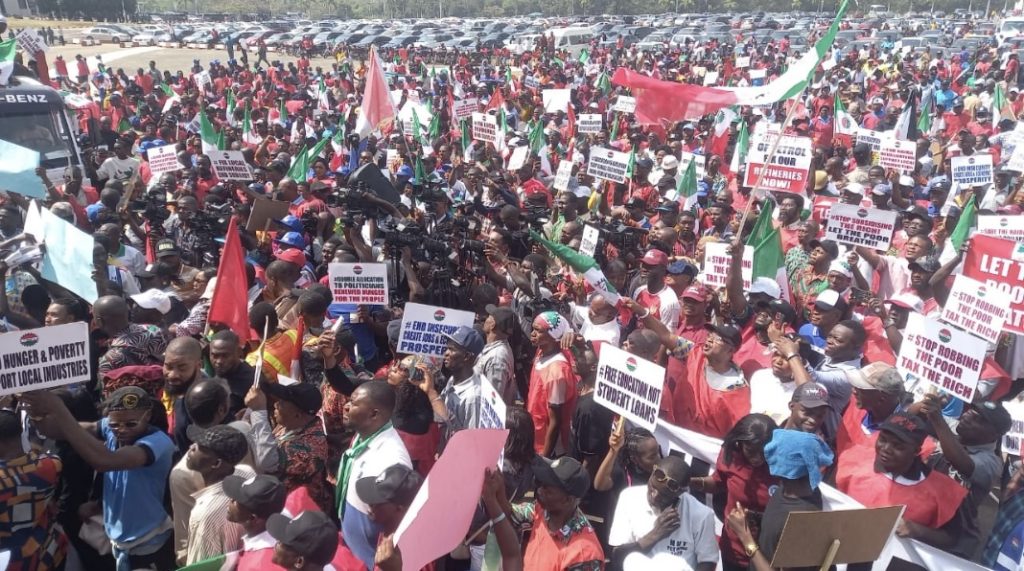
Peaceful Nigerian protesters 2024
The walkout caused significant disruptions to business and daily life, thereby making it clear to employers, public servants, and legislators that the current state of affairs could not continue. Public support for the workers’ cause remained high despite the hardships brought about by the strike, with many Nigerians expressing empathy and solidarity for their fellow citizens who were fighting for justice.
In the midst of the strike, the resilience and determination of Nigeria’s workers shone brightly, inspiring hope for a brighter future where fuel subsidies are implemented, dignity, fairness, and respect prevail in the workplace. The National strike served as a wake-up call to those in power, reminding them of their responsibility to uphold the rights and welfare of all citizens, especially the most vulnerable among them.
As negotiations between the NLC and government representatives commenced, the spotlight turned to the need for meaningful dialogue and constructive engagement to address the root causes of labor unrest. Both sides were called upon to demonstrate flexibility and goodwill in finding common ground and reaching mutually beneficial solutions.
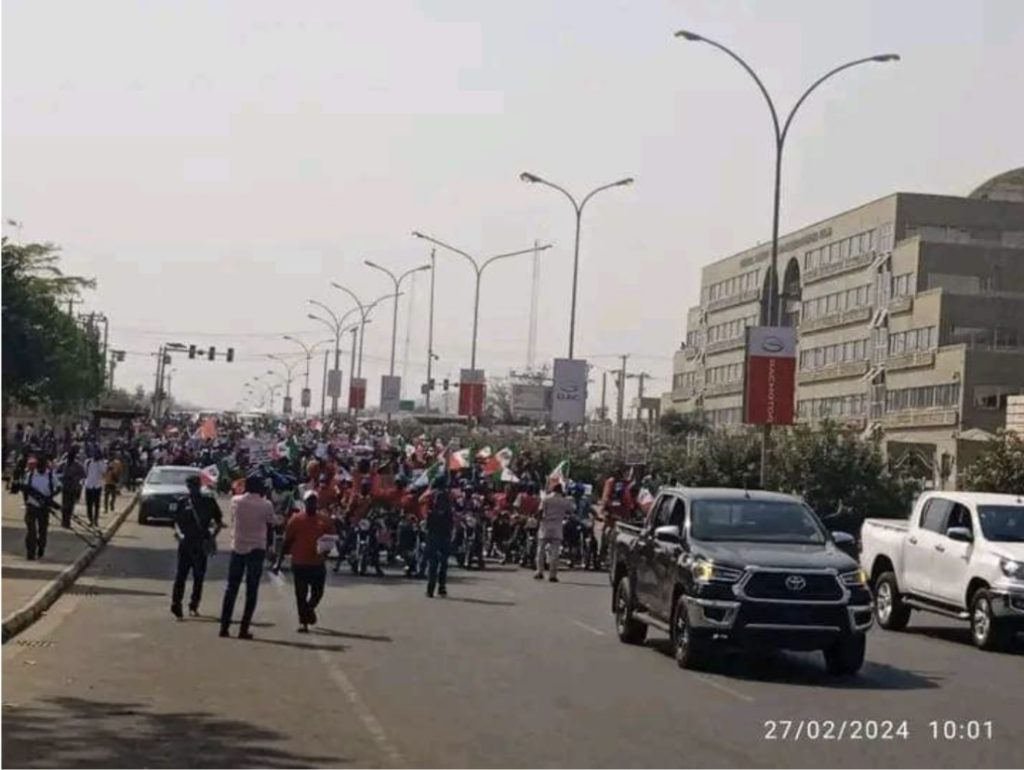
Path to progress
In the end, the National strike’s effectiveness will be determined by its long-term effects on the lives of Nigerian workers as well as the compromises reached at the bargaining table. Let us keep in mind the lessons from this crucial time as Nigeria and the rest of the world move forward and work to create a future where justice, fairness, and compassion are paramount.
It is precisely in the midst of these difficulties that Nigerian politics truly come to life: a mentality characterised by tenacity, willpower, and an unwavering quest for a brighter tomorrow.
If you like our content, join us in helping to bring reality and decency back by SUBSCRIBING to our Youtube channel: https://www.youtube.com/channel/UCQ1Ll1ylCg8U19AhNl-NoTg AND SUPPORTING US where you can: Award Winning Independent Citizen Media Needs Your Help. PLEASE SUPPORT US FOR JUST £2 A MONTH https://dorseteye.com/donate/

